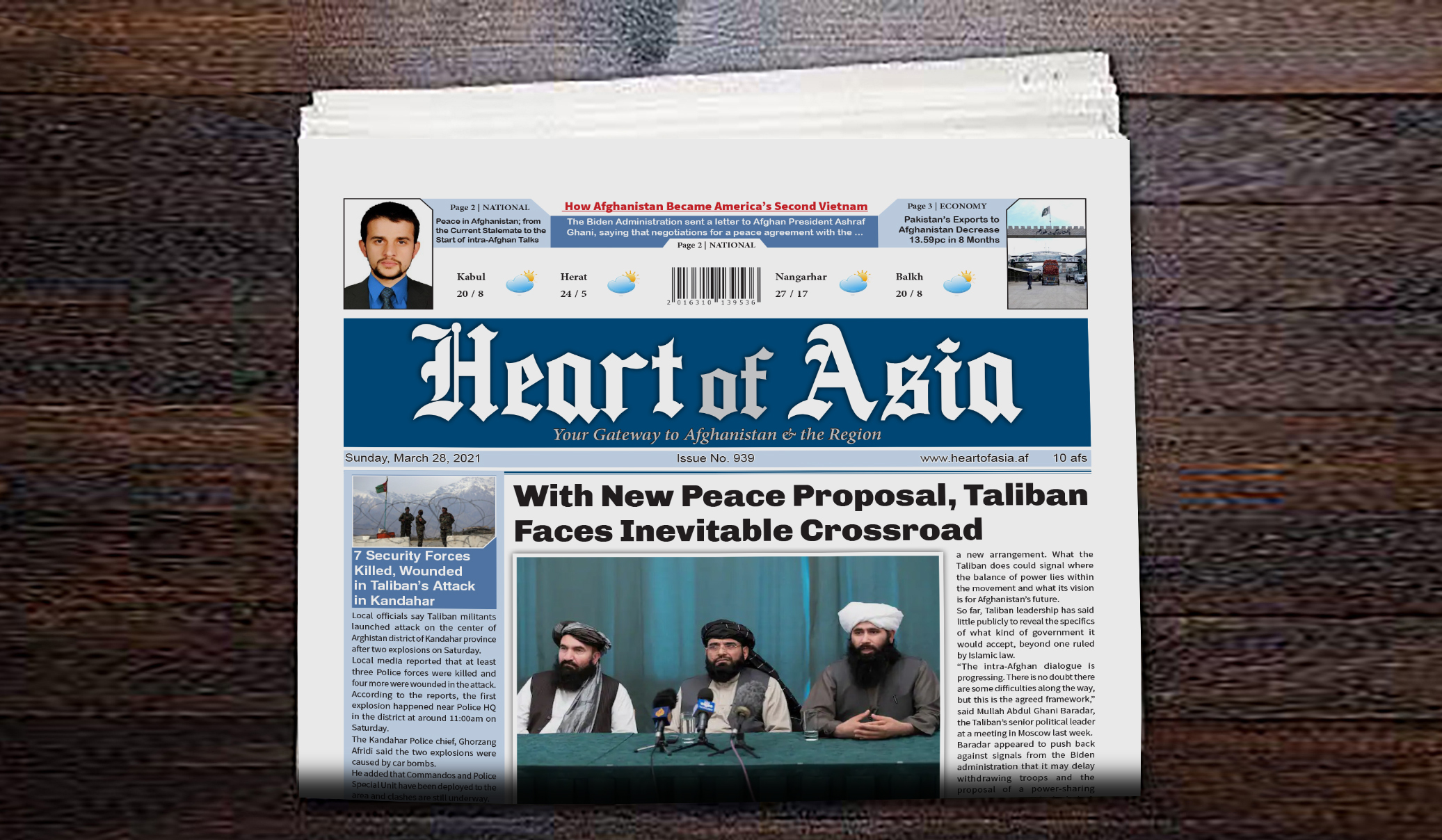For months, the Taliban has managed to both talk peace and wage war across Afghanistan.
The strategy appeared to appease the hard-liners within the militant group who want an outright military victory to end the 20-year conflict and moderate members of the movement who would accept a political solution.
But the new, aggressive U.S. push for a peace deal has brought the Taliban to an inevitable crossroads: Accepting a place in a power-sharing government, as proposed by the United States, would bring the group one step closer to its ultimate goal of retaking full control of the country and establishing an Islamic government — and yet any path to power that prevents Afghanistan from again being labeled a pariah state will require compromise at odds with the core beliefs of the militants’ rank and file.
A deadline looms. The Biden administration has until May 1 to withdraw troops from the country, under a U.S.-Taliban deal signed in February 2019, or negotiate a new arrangement. What the Taliban does could signal where the balance of power lies within the movement and what its vision is for Afghanistan’s future.
So far, Taliban leadership has said little publicly to reveal the specifics of what kind of government it would accept, beyond one ruled by Islamic law.
“The intra-Afghan dialogue is progressing. There is no doubt there are some difficulties along the way, but this is the agreed framework,” said Mullah Abdul Ghani Baradar, the Taliban’s senior political leader at a meeting in Moscow last week.
Baradar appeared to push back against signals from the Biden administration that it may delay withdrawing troops and the proposal of a power-sharing government in a leaked draft peace plan. Both moves would be departures from the U.S.-Taliban agreement signed last year, a document prized by the militants.
“The Doha deal is the best and most effective way to resolve issues and move forward,” he said. “The responsibilities of both sides are clearly written in the peace deal known by the entire world.”
The U.S. proposal also calls for talks in Turkey next month to supplement talks in Doha, the establishment of an interim government and the drafting of a new constitution to be followed by elections.
The Afghan government has said it will attend the Turkey conference. The Taliban has not yet commented. At the conference, Afghan President Ashraf Ghani is planning to propose early elections to choose transition leaders, according to two senior Afghan officials who spoke on the condition of anonymity because they were not authorized to speak to the press.
In addition, Naeem, the spokesman for the Taliban’s political office in Doha, said Taliban fighters reduced violence following the Doha agreement. And as long as the United States fulfills its commitments to the deal and peace talks continue, he said, “there is no reason why [the violence] should escalate.”
“After 40 years of war, negotiating is very difficult,” Naeem said. “There is no time frame for the Afghan negotiations, so it needs time to continue.”













